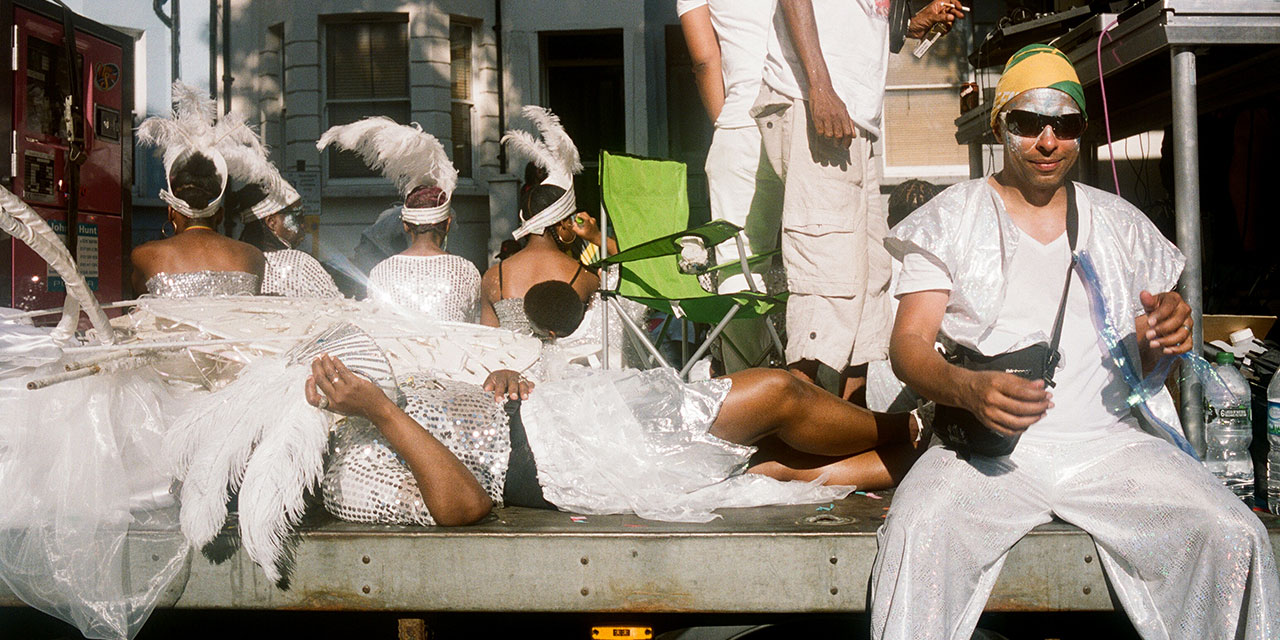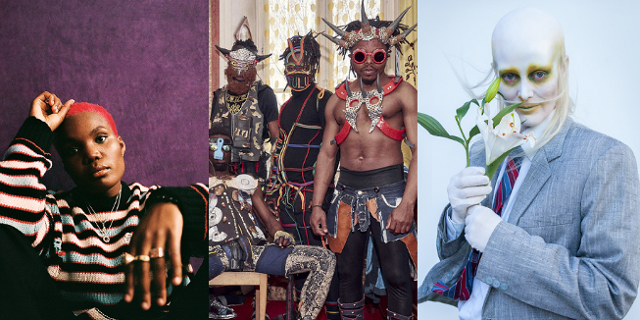The politics of Notting Hill Carnival
By Tonica Hunter
I grew up in north London and despite having moved to Vienna in 2014, I frequently go back there, where some of my family still lives. Most recently, this summer I also went to Notting Hill Carnival after a very long stint of not attending it for years. I don’t know a particular reason why I stopped going. Maybe because if you grow up in London and are of Caribbean heritage (2nd or 3rd generation), Carnival is either the done thing or the overdone thing. You are raised anyway in a double dose of a rich, yet somehow distant, Jamaican (in my case), Bajan/Dominican/etc identity and the complexity of the “Brit-ish” one too. It is an attempt to connect to the former in a context which, paradoxically, affirms the latter.
Maybe it’s also since I went to Carnival as an-as-young-as 8 or 9 years old with my father (who hated crowds but took my brother and me anyway to experience it) and then, celebrating my independence to do so, alone as a teenager with friends to do all the drinking and „wining“ stuff. And then took a break when we thought we had seen and done it all.
Back to the Carnival
This year, I went back for the first time in years, this time with one friend from London (many others have since lost interest in attending) some family and friends from Vienna, one of which, Ina Aydogan, captured phenomenal moments featured in this article. I tried to think about what was different about it since my last time there, if anything. Something which stuck in my mind is the rampant commercialization of carnival. Carnival was originally something Caribbeans started as a way to hark back to their homeland through music, dance, food and coming together in one space to share and exist freely. The music was therefore predominantly calypso, soca, ragga, reggae, dubstep, steel pan, SKA, the sound systems like those “back home”, heavy bass and masterful DJs and MCs dominated those sounds and spaces. It was political and pacifist, despite tensions with police being some of the main reasons for its creation. It had a purpose and importance. A lot has changed since. What struck me was a commonality between what I would call the depoliticization of carnival and what research I had conducted during my studies on the depoliticization of urban riots.
My master’s thesis compared the Parisian riots of 2005 with the London (Tottenham) riots of 2011. It regarded the ideological differences between the UK and France claim to have and define as UK “Multiculturalism” versus assimilation into one „French“ culture and how the two approaches nonetheless produced the same outcome: marginalized groups mainly made up of ethnic minorities of lower socioeconomic status. For me, the media plays a huge role in these depictions, so back then I examined the language and techniques used to explain and portray “urban riots” in both countries.
What is the difference between the London riots and London Carnival?
From Brixton in the 1980s to the 2011 Tottenham riots, they, like Carnival, take place during the hottest summer days. Unlike Carnival which takes place in the affluence of West London, the riots start and remain in impoverished neighbourhoods and destroy their very own surroundings whilst the money Carnival generates makes it something celebrated and welcomed, year after year.
Yet both are depoliticized to serve a supremacist agenda. Riots are passed off as non-political: looting is the focus in newspaper headlines, stories cover the high streets which are destroyed and trainers raided from sports shops, rather than commenting on the perils of capitalism which these attacks are aimed at. The carnival has been stunningly watered down and commercialized more than I remembered since my last visit. The streets are full of advertising, visitors who capitalize on and appropriate Caribbean culture and big brands who sell rum punch, jerk chicken and any merchandise with one of the Caribbean flags. Fortunately, you can still catch some of the original crowd who come out and shake a leg and smile and tell you how things were back in the day and still have hope in what carnival still means to many of us. Quickly followed by a float sponsored by [INSERT BIG BRAND HERE] who giant over the smaller local steelpans. Still, both steel pans and originators are visible and perhaps that is their persistent triumph.
Taking Carnival seriously
But it makes one think: how safe can these communities be beyond a few fun days of Carnival in a context where Europe is heading dangerously right politically? How finite is this claiming of space in a country where a few days after Carnival Boris Johnson, by approval of a so-called neutral Queen of England, suspends parliament for want of pushing through a polemic “No Deal”-Brexit? Is Britain not also the same country where a few months ago the Windrush scandal disrespected and deported the very people and their ancestors who were given the right to come to rebuild post-war Britain and some of whom founded initiatives such as Carnival? There is a lot of dirt swept under the rug of a celebratory, seemingly open-minded event continued for commercial gain without considering the deeper issues which affect those groups which may not even directly make any profit out of Carnival. The very same groups who are suddenly silenced and demonized during protests which aim to address these inequalities.
Carnival is irrefutable as a concept and in reality, beautiful. It is a wonder to see and behold and, as a Caribbean Londoner, it is in some way something I am still proud to have access to and understanding of. Only when the communities that stand behind carnival and equally political events such as riots and protest are taken seriously and understood and acknowledged, can the significance of such events really shine through.
Publiziert am 01.09.2019















